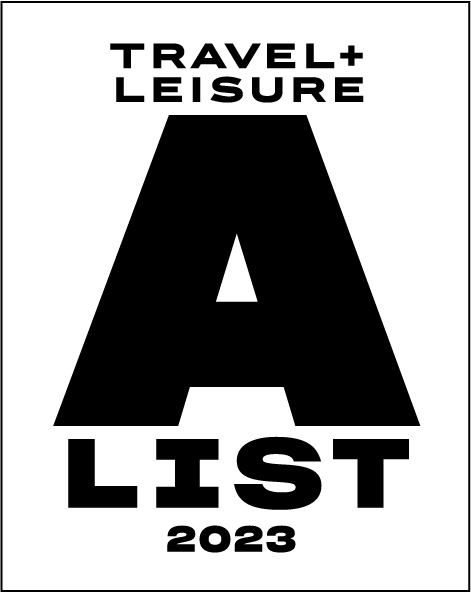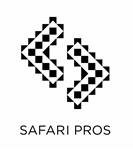Before you go to Rwanda
VISAS
A valid passport is mandatory. Multiple-entry visas are difficult to obtain. Single entry visas are available without difficulty. Rwandan visas are NOT required by nationals of the USA
Please note that it is no longer possible to acquire Rwandan visas on arrival at the airport, so other nationals should either submit their application demands to Rwandan Embassies/Diplomatic Missions abroad, or request for an online Entry Facility Form, which allows them to obtain a visa on arrival at the airport.
GENERAL HEALTH REQUIREMENTS
Yellow Fever vaccination certificates are required for entry into all of East & Central Africa and must be done no later than 10 days prior to your departure. If you have a history of liver disorders (hepatitis etc) you must consult your physician first.
Typhoid may be requested from the authorities when crossing into Rwanda, although it is unusual for it to be requested. This can be done by your local GP or through a travel clinic. There is also the tablet form available - only available from certain pharmacies.
Tetanus is also recommended, as is Cholera, but are not compulsory. Hepatitis inoculation is at the discretion of the traveler. Malaria prophylactics are a must and can be purchased from your local pharmacy. Please consult your pharmacist/doctor.
Diarrhoea / Giardia etc - good personal hygiene and control over the quality of your drinking water should avoid this, bottled water is readily available throughout the country, but take along some medicine in case, particularly if you are planning to spend some time traveling alone and not with a tour. We recommend that guests either buy bottled water, or take along water purification tablets and look after your own drinking water.
As with all medical requirements, your doctor or travel clinic will provide the most up to date information - the above is a guide only.
Specific documentation is require for gorilla trekking and chimpanzee interactions. Please inquire about current requirements.
DEPATURE TAX
From Kenya, Uganda or Tanzania (if you are flying out) is from US$20-50 per person and is usually included on your ticket. If you anticipate paying any departure taxes locally, please take the correct amount - change is generally not given should cash payment be required upon departure.
LAUNDRY
Laundry is possible at most establishments in Uganda at an additional cost. Mostly it is done by hand and dried naturally outside and so this requires at least 1-2 days for turn a round depending upon the location and weather. Please check the system upon arrival at each lodge to ensure you are not caught short with wet washing.
CLOTHES
Shorts, t-shirts, tracksuit, kikoi/sarong, strops/sandals, loose skirt, long sleeve pants and shirt for gorilla trekking, socks for walking boots/shoes. On walking safaris- some of your gear should be in neutral or green colours (not army colours!) - to blend in the bush. When in the vehicle, it does not matter.
The safari dress code is casual throughout.
ELECTRIC
Rwanda: 240 volts but using the 2 pin European style plugs.
Some lodges and camps have power only at certain times of the day, and in some video charging facilities are centralised. You will need your own charger.
In lodges/ camps utilising solar power systems, the amount of power available for charging often depends on how sunny the weather has been and how busy the lodge is with charging equipment, so whilst they will always try to assist, continuous charging cannot be guaranteed at all times to be available.
PHOTOGRAPHY
Do not photograph any government buildings, police or military posts. Ask permission before photographing local people – usually best to check with your guide. For gorilla photography a 35 - 70 mm zoom, or 50 mm fixed is usually sufficient, but you may want to carry a longer lens but remember you may well be in low light conditions. Take fast film (200-400 ASA plus), as you are normally not allowed to use flash, check this with your gorilla guide.
MONEY
US Dollars cash is the preferred option. This can then be changed into local money for spending en route as required. The unit of currency is the Rwandand franc. We suggest a combination of small denomination notes (USD 1, 5, 10, 50) as well as USD 100 bills - make sure they are POST 2000 and have the ‘large heads’ on – (the older notes depict the various senators with ‘smaller heads’ – this may sound a bit cryptic, but when you compare the notes it will become clearer. Keep your receipts, you are able to change surplus shillings back to USD cash if you have proof of purchase when leaving the country.
Travellers cheques are difficult to change and REALLY bad rates of exchange generally apply, and are often VERY difficult to cash. Bank cards (hole in the wall automatic teller machine ones) that work internationally in other parts of the world GENERALLY DO NOT work here in spite of them claiming to be internationally usable all over the world.
Credit cards – there is at least a 5% surcharge when using a credit card, and they are not accepted at very many places.
LUGGAGE
Due to space limitations it is imperative that luggage be kept to a minimum. We suggest a barrel or soft bag (15 kg maximum) for your main gear, plus a camera bag or smaller 'day pack ' for inside the vehicle. Samsonite / hard bags / suitcases, etc. are not suitable as it makes packing very difficult.
Charters – Luggage - If you are traveling on a light aircraft within Uganda, then the luggage restriction is dependent on combined client and luggage weights and varies from plane to plane and routing but usually only up to 10kg per person in soft bags and this is strictly adhered to for safety reasons. Please check your personal allowance on confirmation of itinerary and aircraft.
FLIGHTS
You must ensure you reconfirm your onward and return flights no later than 72 hours prior to departure. Failure to do so could result in your seats being cancelled.


